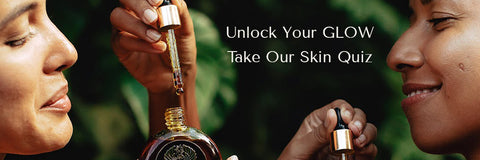Best Moisturizer For Dry Skin
Dry skin, marked by insufficient moisture in the epidermis, can result from environmental factors like cold weather, low humidity, and over-washing, which strip natural oils, or from health issues and harsh skincare products that damage the skin’s barrier. Hydrating with the right moisturizers is vital for maintaining soft, healthy skin, as they help lock in moisture, providing relief and lasting hydration. Recognizing the causes and symptoms of dry skin aids in selecting products that effectively hydrate and support the skin’s barrier.
Products formulated with Arnica to address reduce skin inflammation, bruising, and swelling.
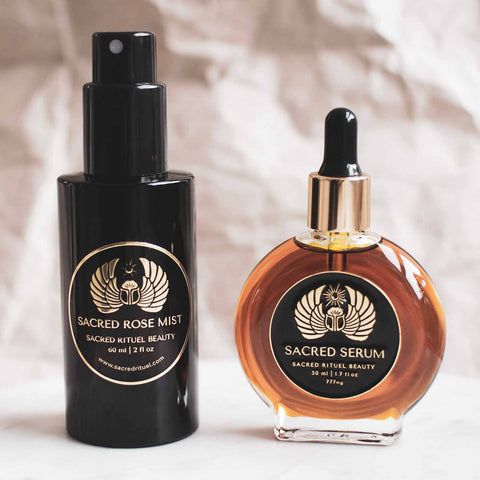
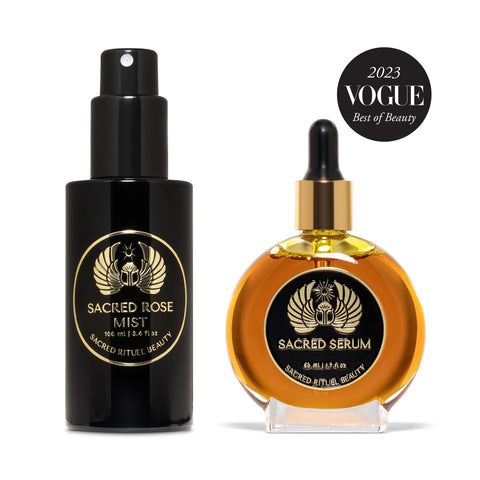


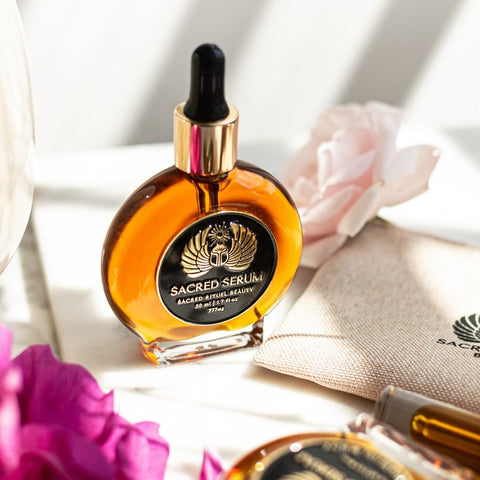
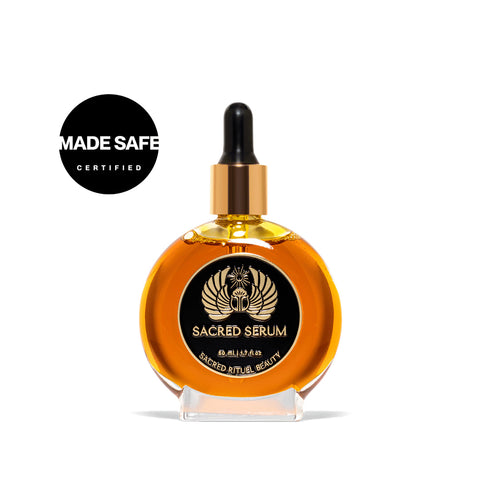

Key Ingredients In Moisturizers For Dry Skin: Hyaluronic Acid And Ceramides
When selecting a moisturizer for dry skin, it's essential to look at the ingredients list. Two key components that have been proven to provide significant benefits for dry skin are hyaluronic acid and ceramides.
Hyaluronic Acid
This powerful humectant attracts moisture from the environment and can hold up to 1000 times its weight in water. Hyaluronic acid helps to retain moisture in the skin, keeping it hydrated, plump, and youthful. It is particularly beneficial for dry skin as it helps to alleviate tightness and flaking by replenishing lost moisture.
Ceramides
These lipid molecules are found naturally in the skin and are critical in supporting the skin’s barrier and retaining moisture. They help to protect the skin from environmental aggressors such as irritants and pollution. For dry skin, ceramides are essential as they repair the skin's barrier, reduce dryness, and improve the skin’s overall texture and appearance.
Top Moisturizers For Dry Skin: Features And Benefits
When looking for the best moisturizer for dry skin, it’s important to consider products that not only hydrate but also protect and repair the skin’s natural barrier. Below are some of the top moisturizers tailored for dry skin, highlighting their key features and benefits:
Hyaluronic Acid-Infused Moisturizer
Ideal for extremely dry skin, this type of moisturizer is packed with high levels of hyaluronic acid, ensuring deep hydration. It absorbs quickly, leaving the skin feeling soft, supple, and plumped without any greasy residue.
Ceramide-Rich Cream
A ceramide-rich moisturizer helps restore the skin's barrier, preventing moisture loss and shielding the skin from environmental stressors. These creams are typically denser, providing long-lasting hydration and improving the overall texture of the skin.
Plant-Based, Organic Moisturizers
Clean beauty enthusiasts should explore plant-based moisturizers like Sacred Rituel Body Oil, crafted with organic ingredients for dry skin. Its natural oils, shea nut, lavender and green tea offer antioxidants, and vitamins for skin repair and hydration, embodying clean beauty principles while effectively nurturing the skin.
Multi-Tasking Moisturizers
Some skincare products target multiple issues beyond dryness, including sensitivity, aging, and dullness, by incorporating antioxidants, peptides, and SPF. The Sacred Trio—Serum, Rose Toner, and Body Oil—offers a holistic approach, blending hydration with skin rejuvenation to tackle various concerns while nourishing and protecting the skin.
Fragrance-Free And Hypoallergenic Options
For individuals with sensitive or allergy-prone skin, fragrance-free and hypoallergenic moisturizers are essential. They provide hydration without causing irritation or reactions, making them suitable for even the most sensitive skin types.
How To Choose The Right Moisturizer For Your Skin Type
Choosing the right moisturizer for your skin type is crucial for effective hydration and skin health. Here are some guidelines to help you select the best product for your specific needs:
For Extremely Dry Skin
Look for rich creams that contain high levels of emollients and humectants like hyaluronic acid, glycerin, and shea butter. These ingredients help to deeply hydrate the skin and lock in moisture. Ointments and balms can also be beneficial for severely dry, cracked skin, especially during winter months.
For Normal To Dry Skin
Lotion or cream-based moisturizers that are not too heavy are ideal. Look for products that contain ceramides, hyaluronic acid, and natural oils. These ingredients will provide adequate hydration without leaving the skin feeling greasy.
For Combination Skin
The Sacred Set, featuring Serum and Rose Toner, offers balanced hydration with organic formulas, ideal for moisturizing while keeping the T-zone's oils in check. Choose this duo for a well-rounded skincare routine.
For Oily Skin
It's a common misconception that oily skin doesn't need moisturizing. Opt for oil-free, water-based moisturizers or gels that contain hyaluronic acid to maintain hydration levels without adding extra oil to the skin.
For Sensitive Skin
Choose fragrance-free, hypoallergenic skincare with soothing ingredients like chamomile, avoiding alcohol and fragrances that can cause irritation. Sacred Serum is an ideal choice, offering a gentle, irritant-free formula for effective care without causing redness or reactions.
Applying Your Moisturizer Effectively For Maximum Hydration
Applying moisturizer correctly can significantly enhance its hydrating effects. Here are some tips to ensure you get the most out of your moisturizing routine:
Cleanse Gently Before Moisturizing
Always apply moisturizer to clean, slightly damp skin. Cleansing removes impurities and excess oil, but avoid over-washing or using harsh cleansers that can strip natural oils from your skin. Pat your skin dry gently with a towel after washing.
Apply While Skin Is Damp
For best results, apply your moisturizer within a few minutes of showering, bathing, or washing your face. Moisturizers are most effective when they trap existing moisture in your skin.
Use The Right Amount
A pea-sized amount for the face and a dime-sized amount for each body part should suffice. Using too much product can lead to wastage and might leave your skin feeling greasy.
Warm It Up
Before applying, warm the moisturizer between your hands. This can help it penetrate your skin more effectively.
Apply Gently
Use gentle, upward strokes to spread the moisturizer over your skin. Be careful not to pull or drag the skin, especially around the delicate eye area.
Don’t Forget The Neck And Décolletage
These areas are often overlooked but are just as prone to dryness and signs of aging as the face.
Nighttime Hydration
Consider using a thicker cream or overnight mask in the evening to provide your skin with intense hydration while you sleep.
Adjust According To Season
You may need to switch to a heavier moisturizer during winter and a lighter one during summer, depending on your skin’s needs and the climate.
Final Thoughts
Effectively managing dry skin goes beyond occasional moisturizing; it requires a targeted strategy that combines selecting the right ingredients like hyaluronic acid and ceramides with an understanding of individual skin needs. A personalized skincare routine, encompassing gentle cleansing, proper product application, and seasonal adjustments, is crucial for lasting hydration and overall skin health. This comprehensive approach not only soothes dry skin but also strengthens the skin's natural defenses, resulting in a softer, smoother, and healthier complexion.
Frequently Asked Questions
Can diet affect dry skin?
Yes, diet can significantly impact skin health. Consuming foods rich in omega-3 fatty acids, such as fish, flaxseed, and walnuts, can help improve skin hydration. Drinking ample water and eating hydrating fruits and vegetables like cucumbers and watermelon can also help maintain skin moisture.
How often should I apply moisturizer if I have dry skin?
It's advisable to moisturize at least twice a day – once in the morning and once at night before bed. However, you may need to apply more frequently if your skin feels particularly dry or if you are in a dry environment.
Are there any lifestyle changes I can make to reduce dry skin?
Yes, avoiding long, hot showers, using a humidifier in dry climates, wearing protective clothing in cold weather, and staying hydrated by drinking plenty of water can all help reduce dry skin.
Is it necessary to use different moisturizers for the face and body?
Yes, facial skin is more delicate than the skin on your body and may have different needs. It's best to use a lightweight, non-comedogenic moisturizer for the face and a thicker cream for the body.
Can exfoliation help with dry skin?
Yes, gentle exfoliation can remove dead skin cells, allowing moisturizers to penetrate better. However, avoid over-exfoliating as it can strip the skin of natural oils, worsening dryness.
What should I do if my skin is still dry after using moisturizer?
If your skin remains dry after regular moisturizing, consider switching to a more hydrating product, checking your cleansing products for harsh ingredients, and consulting a dermatologist for personalized advice.
Are natural or organic moisturizers better for dry skin?
Not necessarily. While natural or organic ingredients can be beneficial, the most important factor is how your skin responds to the moisturizer. Look for products that specifically target dry skin, whether they are organic or not.
How can I tell if a moisturizer is non-comedogenic?
Non-comedogenic products are specifically formulated not to clog pores. Check the product label for the term "non-comedogenic." If in doubt, research the product online or consult with a dermatologist.
Can using a moisturizer with SPF replace sunscreen?
While moisturizers with SPF provide some protection against UV rays, they might not offer as much coverage as dedicated sunscreens. It's best to use a separate sunscreen, especially if you'll be spending extended time outdoors.
Can stress affect dry skin?
Yes, stress can impact your skin, potentially exacerbating dry skin conditions. Managing stress through techniques like meditation, exercise, and adequate sleep can help improve skin health.


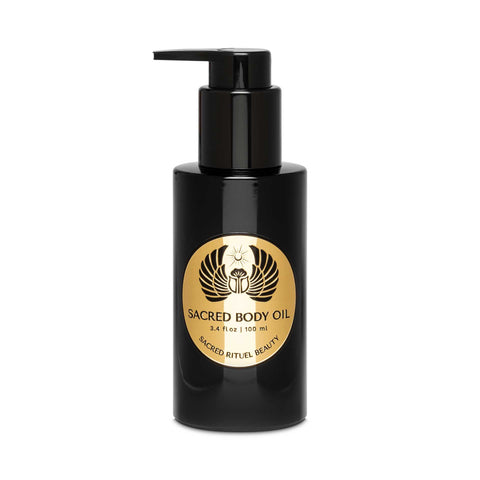
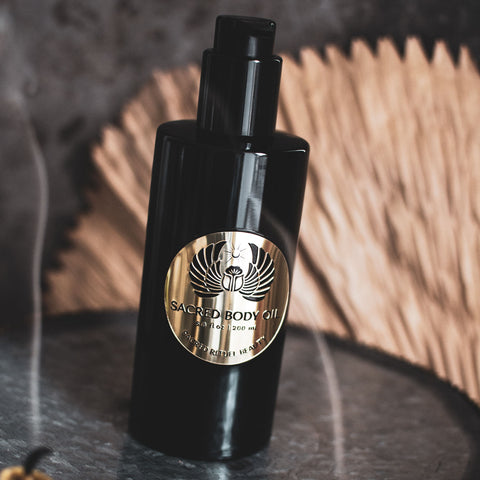
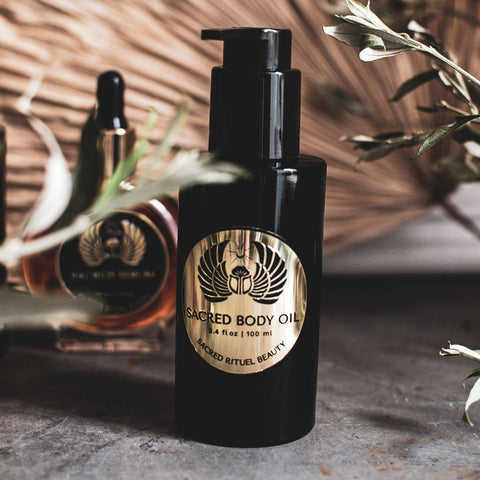
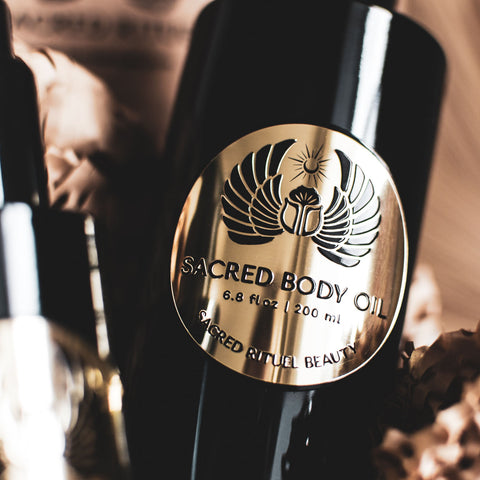
All Day Glow Essentials
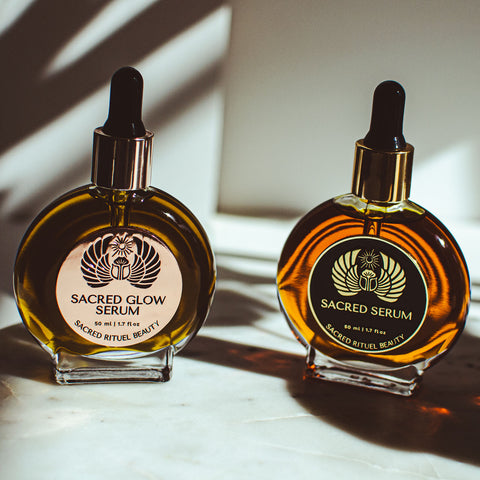
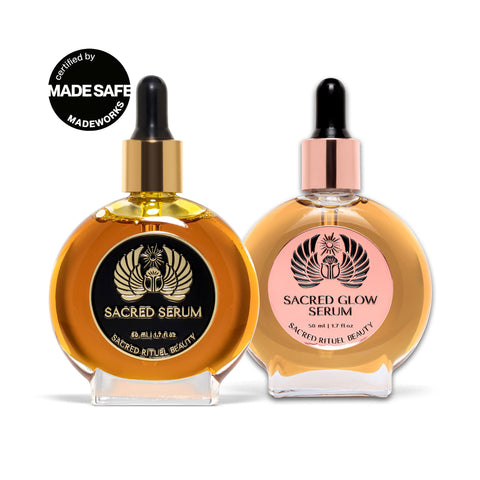
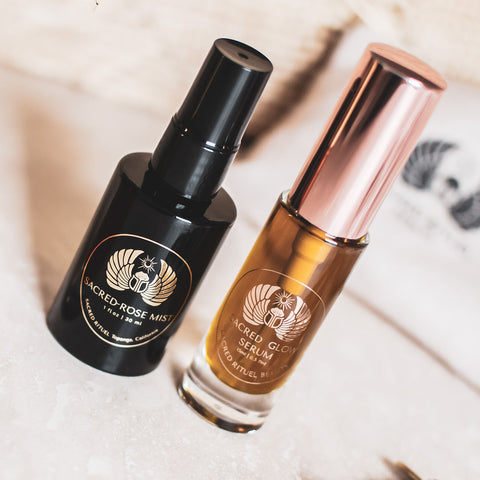
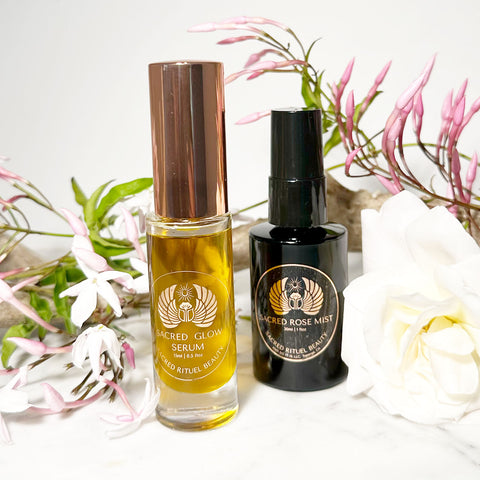
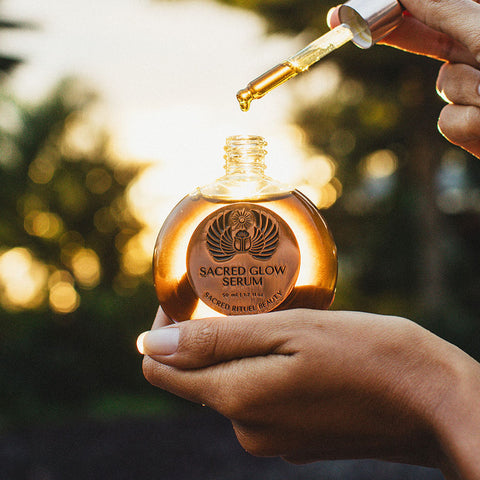
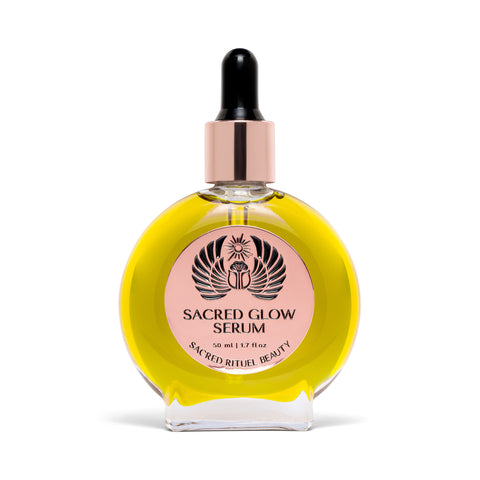
Free Shipping on orders over $90
FREE Shipping on orders over $90 and $7 flat rate on all other orders (USA).
See our shipping policy.
Auto Delivery w/ a Subscription
Ensure you ALWAYS have a steady stream of SACRED RITUEL on hand!
Details in our subscriptions page.
No Hassle 30-day Returns
Try SACRED RITUEL for 30 days and send it back for a full refund if it doesn't completely meet your expectations.
Details in our return policy.
SACRED RITUEL is
High potency all organic skincare
Newsletter
Stay connected on wellness tips, exclusive sales and events!

